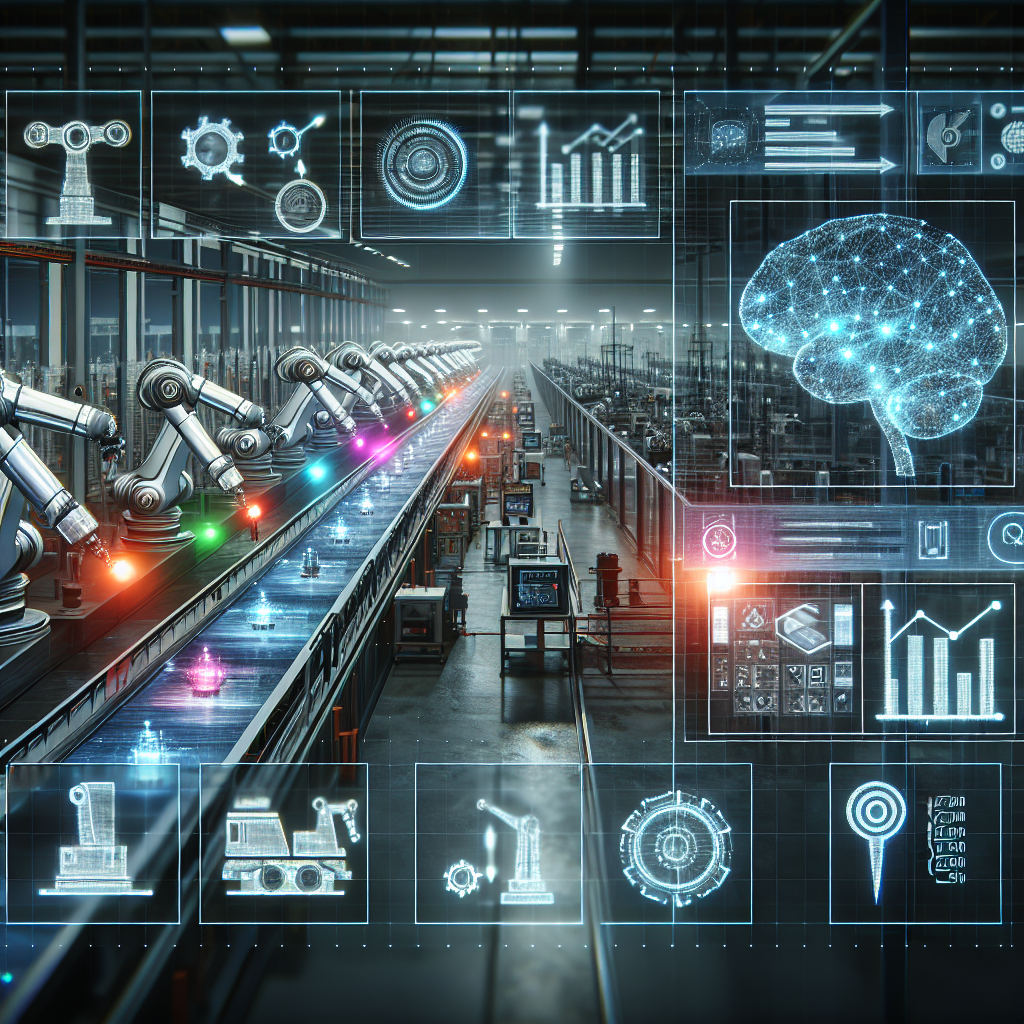Artificial Intelligence (AI) is revolutionizing the manufacturing industry by improving quality control processes. With the advancement of AI technology, manufacturers are able to enhance their production efficiency, reduce defects, and ultimately deliver higher quality products to consumers. In this article, we will explore how AI is transforming quality control in manufacturing and its impact on the industry.
AI in Manufacturing Quality Control
AI is being used in various aspects of quality control in manufacturing, from detecting defects in products to predicting maintenance needs in machinery. One of the key benefits of incorporating AI in quality control is its ability to analyze large amounts of data quickly and accurately, which enables manufacturers to make more informed decisions in real-time.
One of the main applications of AI in quality control is in the inspection of products for defects. Traditional methods of inspection involve manual labor, which can be time-consuming and prone to errors. AI-powered systems, on the other hand, can analyze images and data from sensors to detect even the smallest defects in products with high accuracy.
AI algorithms can be trained to recognize patterns and anomalies in products, allowing manufacturers to identify defects early in the production process and take corrective actions. This not only improves the overall quality of products but also reduces the number of defective products that reach consumers.
Another area where AI is making a significant impact on quality control is in predictive maintenance. By analyzing data from sensors and machinery, AI algorithms can predict when a machine is likely to fail and alert operators to take preventative measures. This helps manufacturers avoid costly downtime and unplanned maintenance, resulting in increased productivity and efficiency.
Furthermore, AI can also be used to optimize production processes by analyzing data from various sources, such as supply chain management systems and customer feedback. By identifying patterns and trends in data, manufacturers can make adjustments to their processes in real-time to improve overall quality and reduce waste.
Overall, the integration of AI in quality control is transforming the manufacturing industry by enabling manufacturers to produce higher quality products more efficiently and cost-effectively.
FAQs
1. How does AI improve quality control in manufacturing?
AI improves quality control in manufacturing by analyzing large amounts of data quickly and accurately to detect defects in products, predict maintenance needs in machinery, and optimize production processes. This enables manufacturers to produce higher quality products more efficiently and cost-effectively.
2. What are some examples of AI applications in quality control?
Some examples of AI applications in quality control include image recognition systems for defect detection, predictive maintenance algorithms for machinery, and data analytics tools for process optimization. These applications help manufacturers improve product quality, reduce defects, and increase productivity.
3. How can manufacturers implement AI in quality control?
Manufacturers can implement AI in quality control by investing in AI-powered systems and technologies, training their employees to use these systems effectively, and integrating AI into their existing production processes. By leveraging AI technology, manufacturers can enhance their quality control processes and improve overall product quality.
4. What are the benefits of using AI in quality control?
Some of the benefits of using AI in quality control include improved product quality, reduced defects, increased productivity, and cost savings. AI enables manufacturers to analyze data more effectively, detect defects early in the production process, and make real-time adjustments to optimize production processes.
5. Are there any challenges to implementing AI in quality control?
While AI offers many benefits for quality control in manufacturing, there are also some challenges to implementation, such as the initial cost of investing in AI technologies, the need for specialized training for employees, and concerns about data privacy and security. However, with the right strategy and resources, manufacturers can overcome these challenges and reap the benefits of using AI in quality control.
In conclusion, AI is transforming quality control in manufacturing by enabling manufacturers to produce higher quality products more efficiently and cost-effectively. By leveraging AI technology, manufacturers can detect defects early in the production process, predict maintenance needs in machinery, and optimize production processes to improve overall product quality. With the continued advancement of AI technology, the future of quality control in manufacturing looks promising, with endless possibilities for innovation and improvement.

